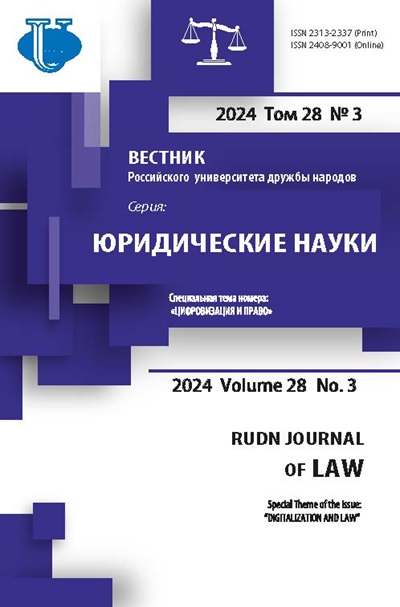Правовые аспекты и специфические черты медицинского перевода как отдельного вида профессиональной деятельности в рамках системы государственных служб и учреждений
- Авторы: Василенко Л.Ю.1, Титова О.К.1
-
Учреждения:
- Российский университет дружбы народов
- Выпуск: № 2 (2014)
- Страницы: 393-399
- Раздел: Статьи
- URL: https://journals.rudn.ru/law/article/view/5946
Цитировать
Полный текст
Аннотация
В статье рассматриваются специфические черты медицинского перевода как отдельного вида профессиональной деятельности в рамках перевода в системе государственных служб и учреждений, а также некоторые правовые аспекты предоставления переводчика. Наряду с этим в статье исследуются специфика коммуникации между врачом и пациентом, осуществляемая при содействии переводчика, факторы эффективности такой коммуникации, а также влияние институционального контекста на коммуникационные цели и социальные роли участников.
Об авторах
Лариса Юрьевна Василенко
Российский университет дружбы народов
Email: laravas@list.ru
Кафедра иностранных языков юридического факультета
Ольга Константиновна Титова
Российский университет дружбы народов
Email: Shetkina_olga@bk.ru
Кафедра иностранных языков юридического факультета
Список литературы
- Angelelly C. The role of interpreter in health care setting. - Valero-Garcés, C & Martin, A. 2008.
- Baker D.W. & Hayes, R. The effect of communicating through an interpreter on satisfaction with interpersonal aspects of care // Journal of General Internal Medicine, 12 (Suppl.1), 1997.
- Bischoff A., Loutan L. Other words other meanings. A guide to health care interpreting in international setting. - HUG, Geneva, 2008.
- Carr S., Roberts R., Dufuor A., Steyn D. The critical link: Interpreters in the community. Papers from the First International Conference on interpreting in Legal, Health and Social Service Settings. Geneva Park, Canada, June 1-4. Amsterdam. - Philadelphia: Benjamins, 1995.
- Cambridge J. The Public Service Interpreter’s face: Rising to the challenge of expressing powerful emotions for others // Buendía, Carmen T. Contemporary problematics in Translation Studies. La Laguna: Universidad de La Laguna. Special issue of Revista Canaria de Estudios Ingleses 51, 141-157. 2005.
- Dysart-Gale D. Communication models, professionalization, and the work of medical interpreters // Health Comm 2005; 17: 91-103.
- Flores G. The impact of medical interpreter services on the quality of health care: a systematic review // Med Care Res Rev 2005; 62:255-299.
- Fuller J. Intercultural health care as reflective negotiated practice. - West J Nsg Res 2003.
- Greenhalgh T., Robb N., Scambler G. Communicative and strategic action in interpreted consultations in primary health care: a Habermasian perspective // Soc Sci Med 2006; 63:1170-1187.
- Hsieh E. The Communicative Perspective of Medical Interpreting // Studies in English Language and Literature, No.11, February 2003.
- Meyer B. Interpreter-mediated doctor-patient communication: the performance of non-trained community interpreters // Roberts R. Abraham D., Dufour A. editors. The critical link 2: Interpreters in the community. - Amsterdam, Philadelphia: Benjamins Translation Library, 2000.
- Roberts Roda. Community Interpreting Today and Tomorrow. Proceedings of the 35th Annual Conference of the American Translators Association. - Medford, NJ: Learned Information, 1994.
- Rosenberg E. et al. Doctor-patient communication in primary care with an interpreter: Physician perceptions of professional and family interpreters. - Patient Education and Counseling 67 (2007).
- Tebble H. Training doctors to work effectively with interpreters // Brunette L. editor. The critical link 3. - Montreal QC: Benjamins Translation Library. 2003.
- Valero-Garcés C. Doctor-patient consultations in dyadic and triadic exchanges // Interpreting 2005; 7:193-210.















